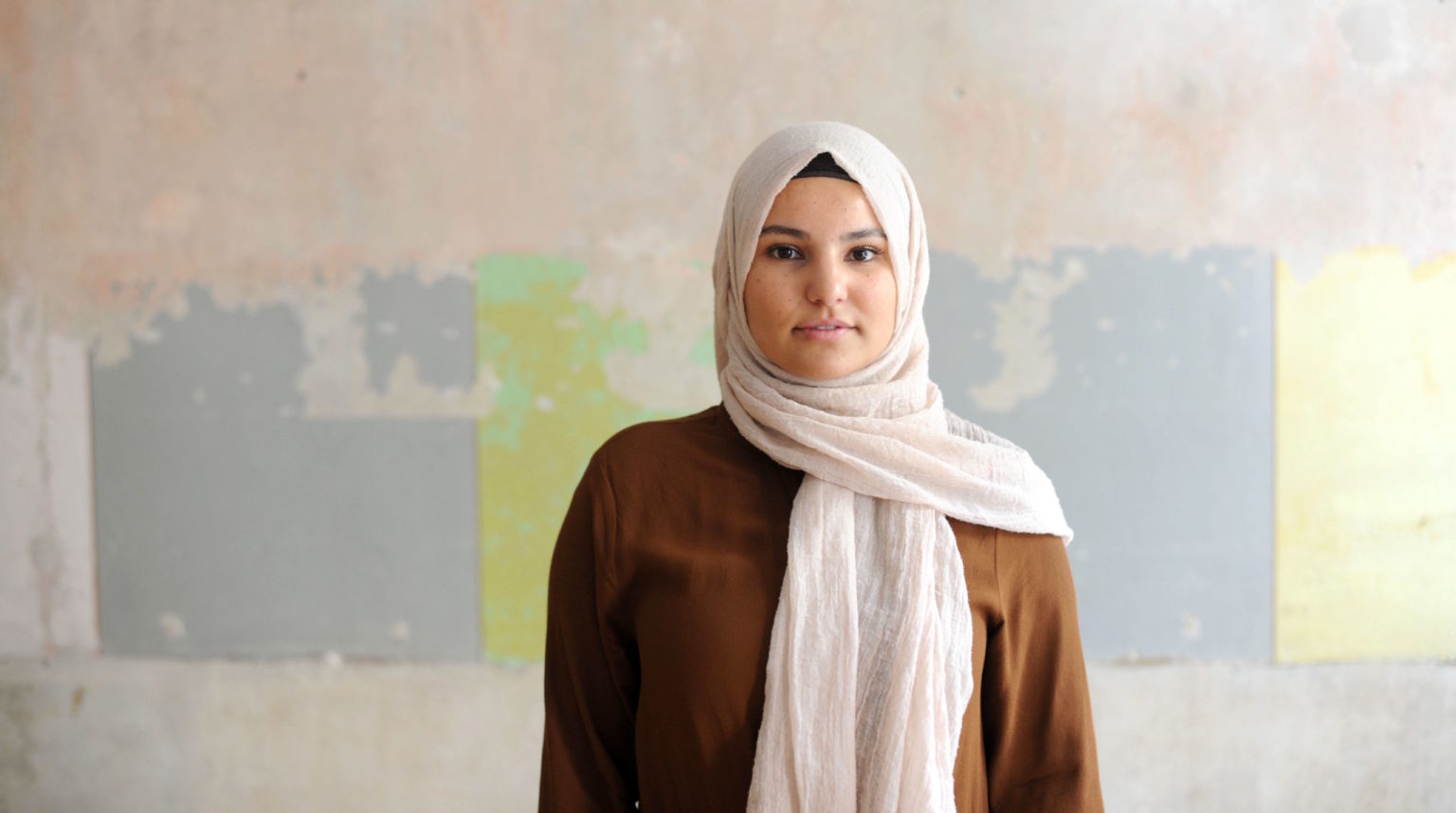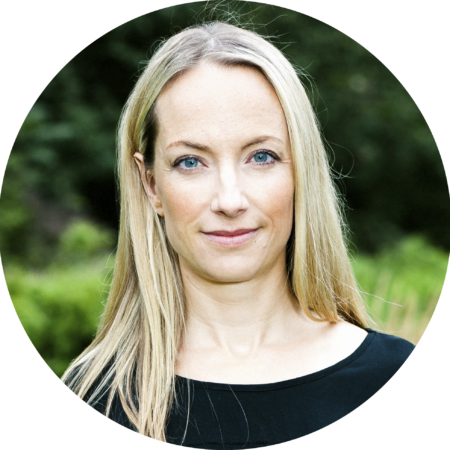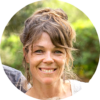She was a hairdresser, then a social worker. Dalal Mahra did not grow up being religious, but the 30-year-old Berliner made a conscious decision to wear a hijab. Now she has founded „Kopftuchmädchen“, “Hijab Girls“ in English, a media project that aims to break down stereotypes and show different facets.
By Anne Klesse, Hamburg
Anyone who thinks of “hijab girls” as oppressed women doesn’t know Dalal Mahra. The Berlin woman wears her headscarf confidently and in bright colours, sometimes with an Adidas jacket, sometimes with a wildly patterned blouse. It doesn’t matter whether her hair is visible or not – if her job didn’t thematise precisely that: In May 2020, together with Fatima El Sayed and Dilara lker, she created „Kopftuchmädchen“, “Hijab Girls”, a media project that picks up on common resentments with its name, but aims to refute them in terms of content.
The aim is to offer authentic insights into the lives of Muslim women in Germany. Her vision is “to help shape the media landscape in the long term, to counteract the stereotypical image of Muslim women in the mainstream media and to become a serious player in the digital media,” says Mahra. With the term “mainstream media”, as with “hijab girls”, she is adopting – but this time unconsciously – the style of language that is otherwise more likely to be found in the right-wing political spectrum.
The three creators want to be “loud, diverse, unrestrained”. On Instagram, they post short portraits of “power women”, videos and articles on a wide range of topics such as feminism in Islam, Muslim holidays, book tips, the attack in Hanau and the Istanbul Convention on preventing and combating violence against women.
“Küss Mich Kismet“, “Kiss me, Kismet“, is a podcast about “Muslim dating” and has also recently launched its own YouTube channel. Kismet is the Turkish word for „fate“. The target group is “anyone who wants to broaden their horizons and is interested in the Muslim community in Germany”. More than 5,200 Instagram subscribers and a growing number of viewers and listeners show that they are hitting a nerve.
Provocative name that attracts attention
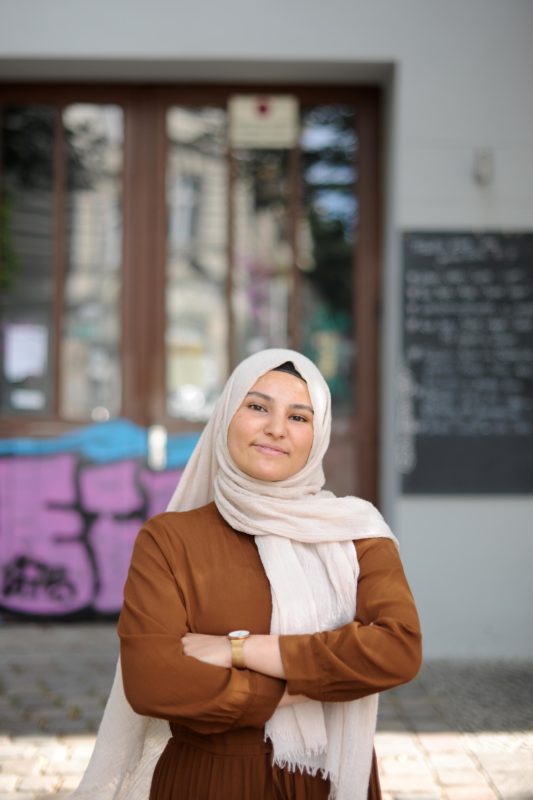
In 2009, the then SPD politician Thilo Sarrazin said in an interview with the cultural magazine “Lettre International”: “I don’t have to recognise anyone who lives off the state, rejects this state, doesn’t make proper provision for their children’s education and constantly produces new little hijab girls.” The statement caused quite a stir and ultimately led to the politician being expelled from the party.
Almost ten years later, AfD parliamentary group leader Alice Weidel spoke in the Bundestag about “burkas, hijab girls and subsidised knifemen and other good-for-nothings”. Bundestag President Wolfgang Schäuble then called her to order, as the statement was a disparagement of all women who wore a headscarf or hijab.
Dalal Mahra chose this name on purpose: “I thought: we’re called that anyway; wouldn’t it be cool if we reframed the term, gave it a different meaning and countered the negative associations with something?” Anyone entering the term in search engines should in future come across her project instead of the contemptuous statements of populists. She has succeeded: The Instagram profile of “Kopftuchmädchen” currently appears as the second hit on Google.
The project is one of eight start-ups that were selected for the Media Lab Bayern’s “Media Startup Fellowship” in spring 2021 and will receive professional support for nine months. “Diversity, inclusion and the representation of all social groups” played a major role in the selection process, says programme manager Lena Jakat.
“The content start-up Kopftuchmädchen, Hijab Girls, reports on Muslim women in Germany with an emancipated, authentic perspective, thereby ensuring that the public image of our society becomes more accurate. The team also wants to reclaim the fighting term ‘headscarf girl’ from the right and turn it into a slogan for empowerment. I think that’s very brave and really cool,” says Jakat.
Interreligious, but not apolitical
The channel is not apolitical: during the Israel-Gaza conflict, which ignited in April 2021 in the predominantly Arab neighbourhood of Sheikh Jarrah in Jerusalem, several posts showed solidarity with the Palestinians and Muslim residents of Jerusalem. The photo of an arrested demonstrator on Instagram reads: “Palestine’s power women taking to the streets to fight for their rights. We are proud of our sisters. May Allah protect our Palestinian brothers and sisters and continue to give them patience and strength.” In addition to approval, there was also criticism in the comments.
On the other hand, interreligious dialogue is also sought again and again. There is a video interview on YouTube between Mahra and the Jewish woman Elina Krass on the topic of head coverings in Islam and Judaism. Among other things, the two women talk about the “Law regulating the appearance of civil servants”, which was passed by the Bundestag in spring 2021. “We simply have Jewish people, Muslim people, people who are Sikh in Germany and a whole lot of other diversity,” says Mahra. Suppressing this diversity – even visually – makes no sense.
Employer did not allow her to wear a headscarf
Looking back: Dalal Mahra grew up in Berlin. She did a lot of theatre at school, is interested in poetry, is sporty, trains in the Israeli martial art Krav Maga and dances. She is a self-confident woman – also in the literal sense – she thinks a lot about who she is, where her place is in this society, how she wants to live. “Headscarf Girls” has a lot to do with her own biography, she says.
During her training as a hairdresser, the desire to wear a hijab grew in her. “The headscarf,” she emphasises. Because the piece of fabric is more than just any scarf. “For me, it was a feminist act, I wanted to decide for myself what to show and what not to show.” She did not grow up religiously, neither her mother nor her two sisters wear headscarves. “Deciding in favour of the hijab was a strong act of self-determination.”
However, her employer at the time did not allow her to wear it in the hairdressing salon on the grounds that he did not want any political or religious symbols. “That was like a slap in the face for me,“ recalls Mahra. “They always say this is a free country, that everyone can be and dress however they want. But that’s where the line is drawn.” She completed her training. The day after her apprenticeship exam, she put on her hijab and didn’t take it off again. She was 21 by then.
She is now 30 years old and has made a second breakthrough on this topic with her media start-up. It was preceded by a kind of headscarf crisis. “About two years ago, I thought about taking it off again after all.” After an internship abroad in the UK, she returned to Germany and was shocked by how little women with hijabs are present in public life here. “Suddenly I was constantly being stared at, I was no longer used to that.” Someone shouted “headscarf bitch” after her on the street. Mahra thought that was cowardly, but it still hurt her.
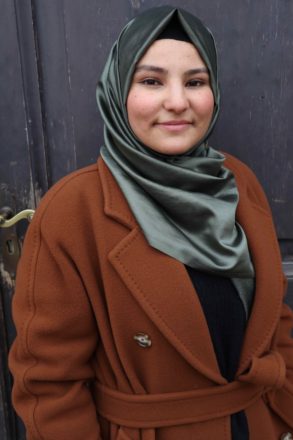
There is also whispering in the Muslim community itself
She then wore it wrapped in a way for a while so that it no longer looked like a Muslim headscarf. “That wasn’t self-determined at all, but only happened because of the social pressure I felt,” she recalls. There is also a lot of talk in the Muslim community itself, says Mahra: About how women dress, whether and how they wear their hijabs or if they don’t wear one. Mahra thinks: “It’s always better to simply ask than to talk about each other.”
She now asks questions herself – in her interviews, in the podcast. She took up the topic of Muslim dating because she herself is “single with a lot of dating experience”. The podcast has around 200 listeners per episode, apparently including many non-Muslims, as she recognises from the feedback. She taught herself the skills for her social media work. After training as a hairdresser, she studied social work, graduated with a bachelor’s degree in 2018 and then worked in migration counselling and family support. She has always had a lot of dealings with people, which now comes in handy when networking.
In the USA, there is the blog “Muslim Girl“, which she found cool and used as a model for her idea, which came to her during a long period of sick leave. She quit her job to set it up. She now works 20 hours a week in family support again. As with most media start-ups, it takes some time before you can earn money with it. In the future, however, Mahra hopes to be able to monetise her project through memberships, collaborations, merchandising and other opportunities.
The motivation to continue is still high, there are plenty of reasons. “I have the feeling that anti-Muslim racism is getting stronger and stronger,” says Mahra. For her, „Kopftuchmädchen“, „Hijab Girls“, is also a feminist movement. “Women are already disadvantaged. Muslim women with headscarves have an even harder time – they are often discriminated against on the labour market and when looking for accommodation. We experience a lot of rejection, sometimes even assaults. Yet there are so many cool women who have something to say.” This also applies to women who do not wear a headscarf. They always find an open door at “Kopftuchmädchen”.

